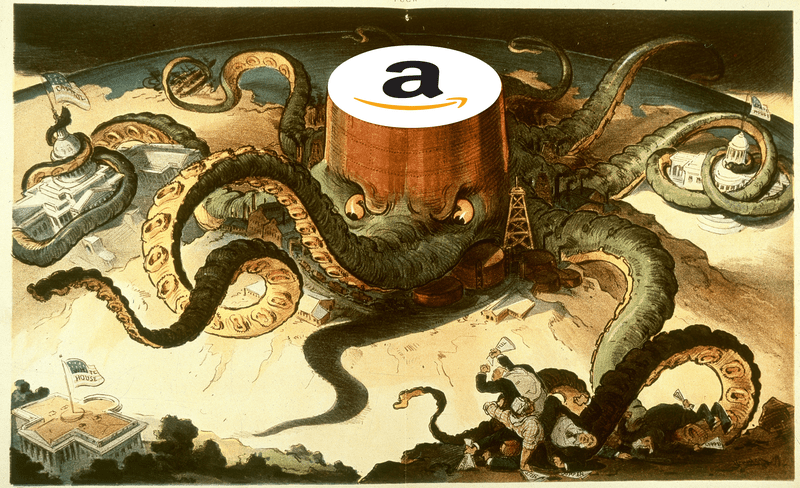Search Results for
January 20, 2026
KJ Boyle Xaver Clarke Julian Scoffield Chris Lewis
Report Climate and EnvironmentCorporate CrackdownDOGEElon MuskExecutive BranchIndependent Agencies
DOGE: From Meme to Government Erosion Machine
DOGE: From Meme to Government Erosion Machine serves as a recounting of DOGE’s first year. We outline DOGE’s operational takeover and systemic demolition of the federal government. We hope this effort to record the scale of DOGE’s destruction engenders much needed accountability for all who enacted and cheered the initiative’s irrational actions.
October 06, 2025
Trump's Polluter Playground
President Donald Trump has spent the last nine months halting the growth of the American clean energy economy in its tracks, dragging the country into a vengeful, backward-leaning energy agenda that does the bidding of his fossil fuel allies and serves the interest of billionaire campaign donors. Consumers and the planet alike will suffer for it.

September 04, 2025
Who is Behind the Growing Abundance Movement?
Who is behind the fast-growing abundance movement? Who are the billionaires and media figures helping it gain popularity?

August 29, 2025
Trump's Homicidal Hurricane Policy
This report summarizes how the Trump administration’s attacks on NOAA and FEMA are putting millions of Americans in mortal danger this hurricane season and beyond.

August 26, 2025
Kenny Stancil Hannah Story Brown Henry Burke
Press ReleaseReport AbundanceAnti-MonopolyClimate and EnvironmentHousingTech
Revolving Door Project, Open Markets Institute Release Report on Abundance Agenda
This report sets out to excavate the proposed policy prescriptions of the broader abundance movement, and thoroughly address their flaws.

April 24, 2025
Mapping the Home Insurance Crisis
A series of interactive maps and tables to help people make sense of the climate change-fueled home insurance crisis.

October 29, 2024
Report: Gas Industry Ramps Up Deceptive Effort to Influence Democrats
A group funded by fracking firms and pipeline companies is ramping up its efforts to cozy up to key Democratic constituencies in service of a pro-polluter agenda, including a bipartisan bill packed with fossil-fuel giveaways that could be considered in Congress in the coming weeks, according to a new report released today by the Revolving Door Project and Public Citizen.

April 16, 2024
New Report: Congressional Appropriators & Big Tech
Today the Revolving Door Project and Fight For The Future released Congressional Appropriators & Big Tech, a special report detailing financial ties, revolving door moves, and other conflicts of interest between congressional appropriators (and their staff) and monopolistic companies like the Big Tech giants.

April 16, 2024
RELEASE: New Report Details How the National Association of Insurance Commissioners Impedes Effective Climate Action
The NAIC exists primarily to stave off federal regulation while setting the lowest possible bar for state regulators, who are often captured by industry interests.

February 22, 2022
Making The Antitrust Division Competitive: A Look At Capacity As Biden Revitalizes Enforcement
The Department of Justice’s Antitrust Division (ATR) is, along with the Federal Trade Commission (FTC), the primary regulator of antitrust law and is responsible for ensuring markets’ competitiveness. In that capacity, it investigates corporate consolidation and allegations of collusion and anticompetitive practices that undermine the free market. ATR is also responsible for supervising mergers and acquisitions to ensure that companies cannot establish monopolies. While both ATR and the FTC share this objective, the two divide jurisdiction based on industry. ATR also investigates and prosecutes criminal antitrust violations.

November 02, 2021
Climate Capacity Crisis: Attrition at Climate Agencies and Immediate Steps to Address It
It has been over nine months since President Donald Trump left office, but on climate policy the federal government continues to show the scars from his disastrous presidency. At a moment when we do not have even a second to waste to avoid catastrophic climate change, agencies are struggling to build back better after attacks on scientific integrity and agency budgets left them without sufficient staff capacity and expertise. While the Biden administration has consistently affirmed its support for the federal workforce through rhetoric and action, New York Times reporting from this summer makes clear that the rebuilding is still not happening fast enough.

July 22, 2021
The Industry Agenda: Big Pharma
In 2019, Gallup found that the pharmaceutical industry was “the most poorly regarded industry in Americans’ eyes,” and rightfully so. Pharmaceutical companies often set drug prices exorbitantly high, including life-saving drugs which patients literally cannot go without, such as insulin. This includes older drugs that are cheaper to produce — such as epinephrine (emergency medication used to treat severe allergic reactions and asthma attacks). These firms achieve this by stifling competition at the consumer’s expense, jealously protecting their money-makers from the generics which the pharmaceutical system is supposed to develop after a patent expires.

June 02, 2021
Working Paper: New Federal Reserve Governors Must Deploy All of the Institution’s Tools to Advance the Public Interest
Over the course of the next eight months, Biden will have the opportunity to reshape the Federal Reserve Board of Governors with nominations for up to four of its seven seats, including the positions of Vice Chair of Supervision, Vice Chair, and Chair (listed in the order they will become vacant). In choosing nominees for these posts, it will be essential that Biden consider the full weight of the Federal Reserve’s immense power and select individuals who are ready and willing to deploy every ounce of it to advance the public interest.

March 29, 2021
White House Personal Financial Disclosures
The Revolving Door Project has been requesting personal financial disclosures, or Form 278e’s, since the White House made them available. While we are still waiting to receive many requests back, we wanted to share the ones we have received with the public as quickly as possible by summarizing relevant findings for each White House appointee.

March 17, 2021
Elias Alsbergas Vishal Shankar
Report 2020 Election/TransitionDefenseExecutive BranchForeign PolicyRevolving Door
The Industry Agenda: Military-Industrial Complex
A powerful collection of weapons manufacturers and defense contractors are shaping American foreign policy by lobbying policymakers and funding hawkish think tanks to keep U.S. defense spending the highest in the world. Their influence-peddling efforts prioritize the defense industry’s profits over countless lives and pressing domestic priorities like universal healthcare. Our Elias Alsbergas and Vishal Shankar explain how the military-industrial complex seeks to influence the executive branch and which defense industry allies are seeking jobs in the Biden Administration.
